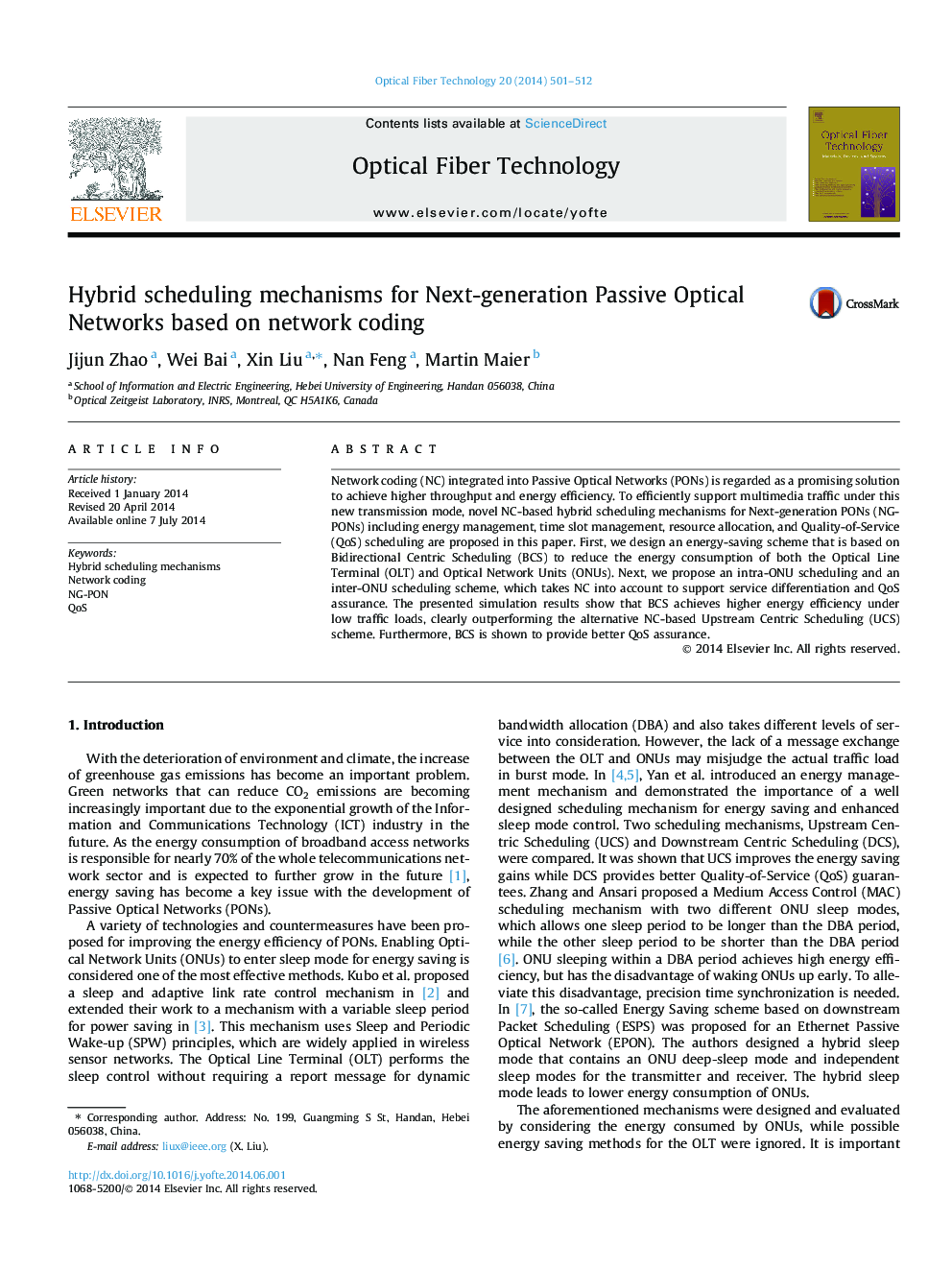| Article ID | Journal | Published Year | Pages | File Type |
|---|---|---|---|---|
| 462395 | Optical Fiber Technology | 2014 | 12 Pages |
•Network coding integrated into PONs is a promising solution to achieve higher network performance and energy efficiency.•The NC-based hybrid scheduling mechanisms include energy management, resource allocation, and QoS scheduling.•The energy-saving scheme is based on Bidirectional Centric Scheduling to reduce energy consumptions of the OLT and ONUs.•The intra-ONU and inter-ONU scheduling schemes take NC into account to support service differentiation and QoS assurance.•Results show that BCS achieves higher energy efficiency under low traffic loads and provides better QoS assurance.
Network coding (NC) integrated into Passive Optical Networks (PONs) is regarded as a promising solution to achieve higher throughput and energy efficiency. To efficiently support multimedia traffic under this new transmission mode, novel NC-based hybrid scheduling mechanisms for Next-generation PONs (NG-PONs) including energy management, time slot management, resource allocation, and Quality-of-Service (QoS) scheduling are proposed in this paper. First, we design an energy-saving scheme that is based on Bidirectional Centric Scheduling (BCS) to reduce the energy consumption of both the Optical Line Terminal (OLT) and Optical Network Units (ONUs). Next, we propose an intra-ONU scheduling and an inter-ONU scheduling scheme, which takes NC into account to support service differentiation and QoS assurance. The presented simulation results show that BCS achieves higher energy efficiency under low traffic loads, clearly outperforming the alternative NC-based Upstream Centric Scheduling (UCS) scheme. Furthermore, BCS is shown to provide better QoS assurance.
